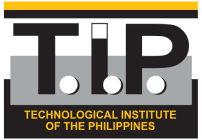

The Entertainment and Multimedia Computing program focused on the study and use of concepts, principles, and techniques of computing in the design and development of multimedia products and solutions. It includes various applications such as in science, entertainment, education, simulations and advertising.
Specialization:
A. Major in Digital Animation Technology
The study and application of fundamental and advanced theories and advanced techniques in 2D and 3D animation, use and development for advancement of animation technologies, and production of commercially acceptable content and viable solutions for different platforms such as broadcast, web and mobile cast.
B. Major in Game Development
The study and application of fundamental and advanced theories in game design, scientific simulations, use and development of gaming technology and tools, and production of commercially acceptable digital games and viable solutions for use in entertainment and scientific applications.
PROGRAM EDUCATIONAL OBJECTIVES
The Entertainment and Multimedia Computing program has adopted the following educational objectives.
Three to five years after graduation, the Entertainment and Multimedia Computing alumni shall:
- have advanced their practice or achievement in the field of Entertainment and Multimedia Computing and/or other endeavors or advocacies supported by their acquired computer science education;
- be globally competitive through
- living by the TIP mission values, pursuing continuing education, and practicing continuous quality improvement in their personal lives;
- continuously scanning, adopting, and building on the best practices in their field.
STUDENT OUTCOMES
By the time of graduation, students will be able to:
T.I.P. SO 1. Analyze a complex computing problem and to apply principles of computing and other relevant disciplines to identify solutions.
T.I.P. SO 2. Design, implement, and evaluate a computing-based solution to meet a given set of computing requirements in the context of the program’s discipline.
T.I.P. SO 3. Communicate effectively in a variety of professional contexts.
T.I.P. SO 4. Recognize professional responsibilities and make informed judgments in computing practice based on legal and ethical principles.
T.I.P. SO 5. Function effectively as a member or leader of a team engaged in activities appropriate to the program’s discipline.
T.I.P. SO 6. Apply concepts, principles and techniques of computing to produce multimedia products and solutions.




